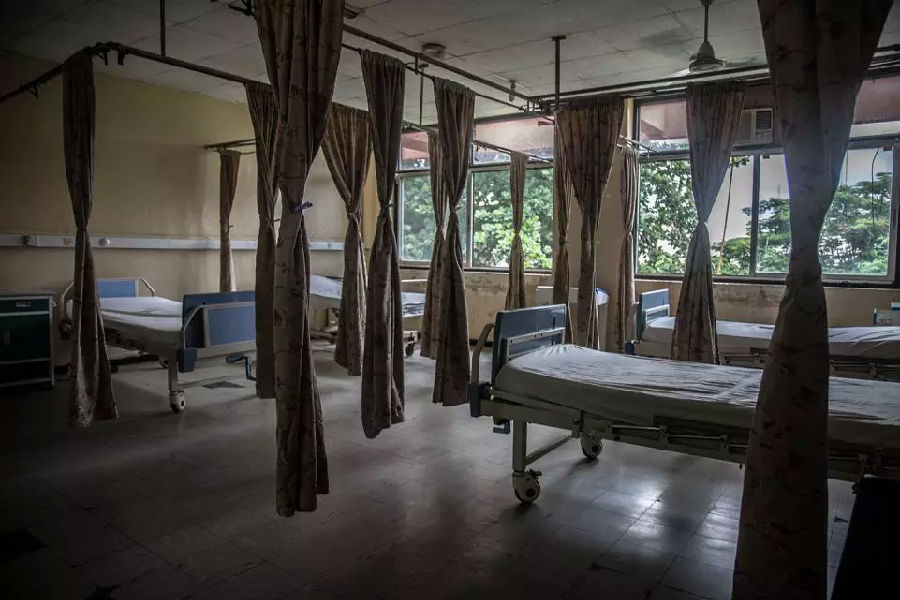Collaborators, though, aren't always so ready to relinquish their position as the superior partner.
然而,合作者并不總是愿意放棄他們作為高級合作伙伴的地位。
De Vries, who chaired the H3Africa working group on ethics for several years, heard some international scientists argue that sub-Saharan Africa wasn't equipped to do sophisticated genetic research on its own.
德·弗里斯在擔任“非洲H3”倫理工作小組主席的幾年里,一些國際科學家認為,撒哈拉以南的非洲沒有能力獨自進行復雜的基因研究。
This perspective may have some truth to it, but it also maintains the status quo.
這種觀點可能有些道理,但也說明了現狀。
"People and institutions that are powerful benefit from the perpetuation of that narrative," she says."Those people are not interested in the substantive development of African research capacity."
她說,“從其中大獲利益的人和機構,對非洲研究能力的實質性發展不感興趣。”

Rotimi is trying to change that narrative.
羅蒂米正試圖改變這種說法。
He wants to give African scientists the capability to stand on their own.
他希望給予非洲科學家獨立自主的能力。
A central tenet of H3Africa is to build the infrastructure necessary to support research that is just as worthy of the world’s attention as that coming out of the best universities in Europe and North America.
“非洲H3”的中心宗旨是建立必要的基礎設施,以支持與歐洲、北美最好的大學一樣值得全世界關注的研究。
Toward that end, lead investigators on any H3Africa project must be African, and ideally the collaborators as well.
為此,任何“非洲H3”項目的首席研究員都必須是非洲人,最好是合作者。
That requirement is building a new world of research capabilities across the continent, such as powerful computers to do bioinformatics research in Sudan;
這一要求是在整個非洲大陸建立一個新的研究能力世界,例如在蘇丹建立生物信息學研究的強大計算機;
a repository in Uganda for storing DNA and generating a huge amount of data on the SNPs that protect against sleeping sickness;
在烏干達建儲存DNA和產生大量可以防止昏睡病SNP數據的資料庫;
and equipment for fieldwork-documented hereditary neurological disorders in Mali, along with a laboratory to identify genetic mutations that increase risk and training for physicians there to educate Malians about genetics and disease.
以及在馬里設立有現場記錄的遺傳神經障礙設備,以及實驗室,用來識別增加風險的基因突變,并培訓那里的醫生,讓他們對馬里人進行遺傳學和疾病方面的教育。
When the grants end, the new capacity remains for future scientists,
當資助結束時,未來科學家的新能力仍然存在,
"so that everybody doesn't end up like Charles Rotimi,"he says,"who wanted to stay in Nigeria but couldn't."
“這樣每個人都不會像查爾斯·羅蒂米那樣,”他說,“想留在尼日利亞卻又無能為力。”
These breakthroughs don't ameliorate all the ethical conundrums, though;
然而,這些突破并沒有改善所有倫理難題;
fears of helicopter science persist.
對直升機科學的恐懼依然存在。
H3Africa encourages collaboration among countries within Africa, but those with less advanced research capacity hesitate to assist more polished countries.
“非洲H3”鼓勵非洲國家之間的合作,但是那些不太先進的研究能力的國家不愿意協助更完善的國家。
In Ghana, some scientists at poorer institutions resent those at wealthier ones presenting work on shared samples without acknowledging their contribution.
在加納,一些在較貧窮機構工作的科學家對那些在較富裕機構工作卻不承認其貢獻的科學家表示不滿。
Others say they sometimes have more input on samples sent to New York than to South Africa.
另一些人說,他們有時對寄往紐約的樣品的投入比寄往南非的要多。
"It's the same issue," says University of North Carolina bioethicist Eric Juengst.
“這是同一個問題,” 北卡羅來納大學生物倫理學家埃里克·云斯特說。
Just as with international collaborators, the idea of sending tissue samples across a border raises fears of exploitation and resentment about helping an economic competitor.
就像與國際合作者一樣,將組織樣本送過國界的想法引發了對剝削的恐懼和對幫助經濟競爭對手的怨恨。
譯文由可可原創,僅供學習交流使用,未經許可請勿轉載。


